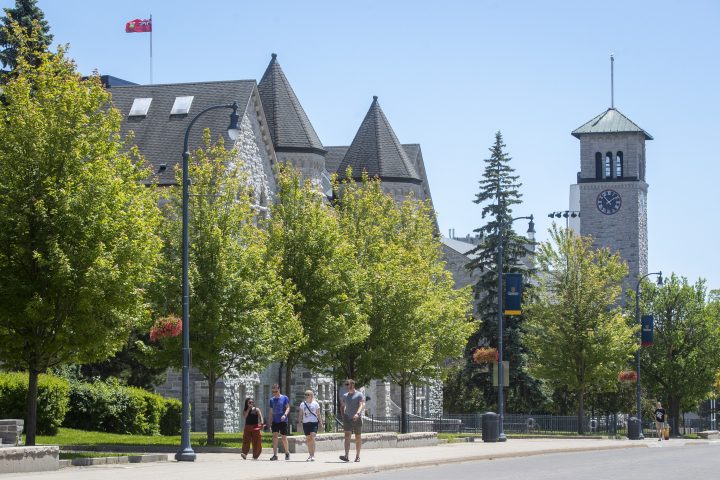Warning: Some of the language in this article may be offensive.

Two women who are both graduate students with the Queen’s University’s department of psychology also share something else: they’ve been subjected to acts of racism while living in Kingston.
The first woman tweeted about an incident of anti-Asian racism and misogyny that happened to her in downtown Kingston Aug. 27.
Adding she was walking down Princess Street when she encountered five men who she says verbally accosted her.
“One of them walked by me and said wear a mask you f*****g Chinese c**t.”
She says then another man in the group continued the racist behaviour, “saying pseudo-Chinese words at me, probably an attempt to mock my ethnicity’s language.”
She says she was shocked and felt unsafe.
“I felt that I couldn’t really say anything in that moment. No one around me seemed to notice, so it was a moment where I felt alone in dealing with that matter.”
The second victim lives in the east end of the city and says she’s seen the n-word spray painted on a fence in her neighbourhood.
She says she has also endured anti-Black racism from one of her neighbours.
- Posters promoting ‘Steal From Loblaws Day’ are circulating. How did we get here?
- Canadian food banks are on the brink: ‘This is not a sustainable situation’
- Video shows Ontario police sharing Trudeau’s location with protester, investigation launched
- Solar eclipse eye damage: More than 160 cases reported in Ontario, Quebec
“This man started to verbally accost me and I acknowledged him and I just continued walking,” she said.
“He just escalated with, ‘yeah, that’s what I thought you f*****g monkey.
The original Twitter post attracted attention with tweets of support from high-profile members of the community, such as Queen’s University principal Patrick Deane, former Kingston and the Islands MP Ted Hsu and Mayor Bryan Paterson.
Paterson says the behaviour they experienced is unacceptable.
“We uphold a standard together. We’re going to be inclusive, we’re going to be welcoming, we’re going to embrace diversity and inclusion,” Paterson said, adding people need to speak up as well.
“It’s OK to call it out. Just say, ‘that’s not OK, you can’t say something like that.'”
Both women are calling for more to be done to address racism, while one believes the education system is an important place to start.
“Not a lot of schools talk about these things. They talk about stranger danger, they talk about no means no, but rarely do they talk about how do you approach racism when you witness it,” she said.




Comments